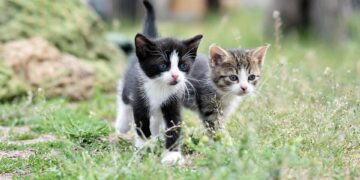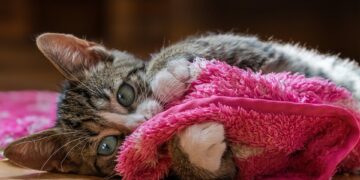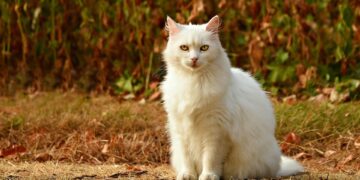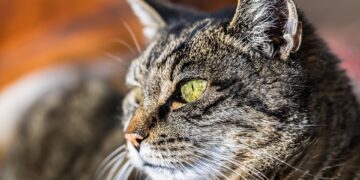The Ultimate Guide to Safe and Healthy Cat Nutrition: What Can Cats Eat Besides Cat Food?
As a cat owner, ensuring that your feline friend is getting the proper nutrition is essential for their overall health and well-being. While cat food is the primary source of nutrition for cats, there are some human foods that can be safely incorporated into their diet. In this comprehensive guide, we will explore what cats can eat besides cat food, and provide tips on how to ensure that your cat is getting the nutrients they need to thrive.
Can Cats Eat Human Food?
Cats are obligate carnivores, which means that they require a diet that is high in animal protein. While cat food is formulated to meet the specific nutritional needs of cats, there are some human foods that can be safely fed to cats in moderation. However, it is important to remember that cats have different dietary requirements than humans, so it is essential to be mindful of what you are feeding your cat.
Safe Human Foods for Cats
There are several human foods that are safe for cats to eat in moderation. Some of these foods include:
- Lean meats such as chicken, turkey, and beef
- Cooked eggs
- Canned tuna or salmon (in moderation)
- Cooked vegetables such as carrots, green beans, and peas
- Fruits such as apples, bananas, and blueberries
It is important to note that these foods should only be fed to cats in small amounts, as they should not make up a significant portion of their diet. Additionally, some foods that are safe for humans can be toxic to cats, so it is crucial to do your research before feeding your cat any human food.
Foods to Avoid Feeding Your Cat
While there are some human foods that are safe for cats to eat, there are also several foods that should be avoided as they can be toxic to cats. Some of these foods include:
- Onions and garlic
- Chocolate
- Grapes and raisins
- Alcohol
- Caffeine
It is important to be aware of these toxic foods and make sure that your cat does not have access to them. If you suspect that your cat has ingested a toxic food, it is essential to contact your veterinarian immediately.
Supplements for Cats
In addition to their regular diet, some cats may benefit from supplements to ensure that they are getting all of the necessary nutrients. Some common supplements for cats include:
- Omega-3 fatty acids
- Probiotics
- Joint supplements
- Multi-vitamins
Before giving your cat any supplements, it is essential to consult with your veterinarian to determine if they are necessary and to ensure that you are giving the correct dosage.
Feeding Tips for Cats
When feeding your cat human foods, it is important to follow these tips to ensure that they are getting the proper nutrition:
- Feed human foods in moderation and as treats rather than as a primary source of nutrition
- Always consult with your veterinarian before feeding your cat any new foods or supplements
- Make sure that any human foods you are feeding your cat are cooked and free from any seasonings or additives
- Monitor your cat for any signs of gastrointestinal upset or allergic reactions after introducing new foods
By following these tips, you can ensure that your cat is getting the proper nutrition while also enjoying some human foods as treats.
Conclusion
While cat food is the primary source of nutrition for cats, there are some human foods that can be safely incorporated into their diet in moderation. By following the tips outlined in this guide and consulting with your veterinarian, you can ensure that your cat is getting the nutrients they need to thrive. Remember to always be mindful of what you are feeding your cat and to monitor them for any signs of digestive upset or allergic reactions. With the right approach, you can provide your cat with a safe and healthy diet that will keep them happy and thriving for years to come.











































